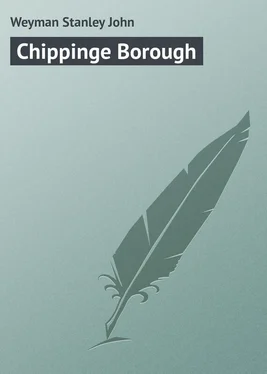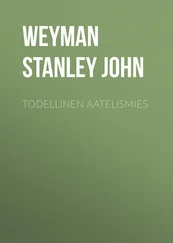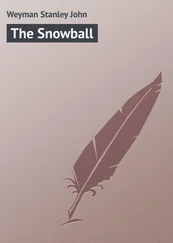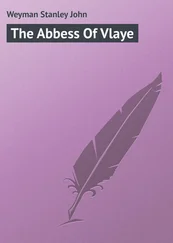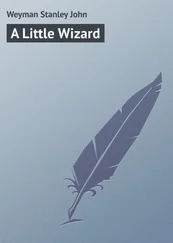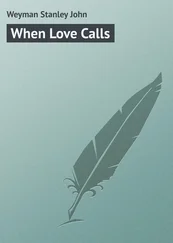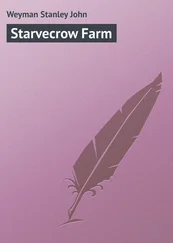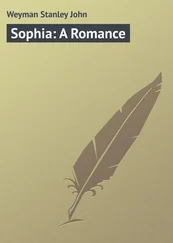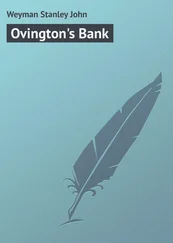Stanley Weyman - Chippinge Borough
Здесь есть возможность читать онлайн «Stanley Weyman - Chippinge Borough» — ознакомительный отрывок электронной книги совершенно бесплатно, а после прочтения отрывка купить полную версию. В некоторых случаях можно слушать аудио, скачать через торрент в формате fb2 и присутствует краткое содержание. Жанр: foreign_prose, на английском языке. Описание произведения, (предисловие) а так же отзывы посетителей доступны на портале библиотеки ЛибКат.
- Название:Chippinge Borough
- Автор:
- Жанр:
- Год:неизвестен
- ISBN:нет данных
- Рейтинг книги:4 / 5. Голосов: 1
-
Избранное:Добавить в избранное
- Отзывы:
-
Ваша оценка:
- 80
- 1
- 2
- 3
- 4
- 5
Chippinge Borough: краткое содержание, описание и аннотация
Предлагаем к чтению аннотацию, описание, краткое содержание или предисловие (зависит от того, что написал сам автор книги «Chippinge Borough»). Если вы не нашли необходимую информацию о книге — напишите в комментариях, мы постараемся отыскать её.
Chippinge Borough — читать онлайн ознакомительный отрывок
Ниже представлен текст книги, разбитый по страницам. Система сохранения места последней прочитанной страницы, позволяет с удобством читать онлайн бесплатно книгу «Chippinge Borough», без необходимости каждый раз заново искать на чём Вы остановились. Поставьте закладку, и сможете в любой момент перейти на страницу, на которой закончили чтение.
Интервал:
Закладка:
"I'm hanged if you are!" coachee retorted. "Nor won't be again!"
The crowd roared at this repartee. The guard was in despair. "Anyway, we must go on, sir," he said. And he seized his horn. "Take your seats, gents! Take your seats!" he cried. "All for Reading! I'm sorry, sir, but I've to think of the coach."
"And the horses!" grumbled the driver. "Where's the gent's sense?"
They all scrambled to their seats except the ex-member. He stood, bursting with rage and chagrin. But at the last moment, when he saw that the coach would really go without him, he swallowed his pride, plucked open the coach-door, and amid the loud jeers of the crowd, climbed in. The driver, with a chuckle, bade the helpers let go, and the coach swung cheerily away through the streets of Maidenhead, the merry notes of the horn and the rattle of the pole-chains drowning the cries of the gutter-boys.
The little Frenchman turned round. "You vill have a refolution," he said solemnly. "And the gentleman inside he vill lose his head."
The coachman, who had hitherto looked askance at Froggy, as if he disdained his neighbourhood, now squinted at him as if he could not quite make him out. "Think so?" he said gruffly. "Why, Mounseer?"
"I have no doubt," the Frenchman answered glibly. "The people vill have, and the nobles vill not give! Or they vill give a leetle-a leetle! And that is the worst of all. I have seen two refolutions!" he continued with energy. "The first when I was a child-it is forty years! My bonne held me up and I saw heads fall into the basket-heads as young and as lofly as the young Mees there! And why? Because the people would have, and the King, he give that which is the worst of all-a leetle! And the trouble began. And then the refolution of last year-it was worth to me all that I had! The people would have, and the Polignac, our Minister-who is the friend of your Vellington-he would not give at all! And the trouble began."
The driver squinted at him anew. "D'you mean to say," he asked, "that you've seen heads cut off?"
"I have seen the white necks, as white and as small as the Mees there; I have seen the blood spout from them; bah! like what you call pump! Ah, it was ogly, it was very ogly!"
The coachman turned his head slowly and with difficulty, until he commanded a full view of Vaughan's pretty neighbour; at whom he gazed for some seconds as if fascinated. Then he turned to his horses and relieved his feelings by hitting one of the wheelers below the trace; while Vaughan, willing to hear what the Frenchman had to say, took up the talk.
"Perhaps here," he said, "those who have will give, and give enough, and all will go well."
"Nefer! Nefer!" the Frenchman answered positively. "By example, the Duke whose château we pass-what you call it-Jerusalem House?"
"Sion House," Vaughan answered, smiling. "The Duke of Northumberland."
"By example he return four members to your Commons House. Is it not so? And they do what he tell them. He have this for his nefew, and that for his niece, and the other thing for his maître d'hôtel! And it is he and the others like him who rule the country! Gives he up all that? To the bourgeoisie? Nefer! Nefer!" he continued with emphasis. "He will be the Polignac! They will all be the Polignacs! And you will have a refolution. And by-and-by, when the bourgeoisie is frightened of the canaille and tired of the blood-letting, your Vellington he will be the Emperor. It is as plain as the two eyes in the face! So plain for me, I shall not take off my clothes the nights!"
"Well, King Billy for me!" said the driver. "But if he's willing, Mounseer, why shouldn't the people manage their own affairs?"
"The people! The people! They cannot! Your horses, will they govern themselves? Will you throw down the reins and leave it to them, up hill, down hill? The people govern themselves Bah!" And to express his extreme disgust at the proposition, the Frenchman, who had lost his all with Polignac, bent over the side and spat into the road. "It is no government at all!"
The driver looked darkly at his horses as if he would like to see them try it on. "I am afraid," said Vaughan, "that you think we are in trouble either way then, whether the Tories give or withhold?"
"Eizer way! Eizer way!" the Frenchman answered con amore . "It is fate! You are on the edge of the what you call it- chute! And you must go over! We have gone over. We have bumped once, twice! We shall bump once, twice more, et voilà -Anarchy! Now it is your turn, sir. The government has to be-shifted-from the one class to the other!"
"But it may be peacefully shifted?"
The little Frenchman shrugged his shoulders impatiently. "I have nefer seen the government shifted without all that that I have told you. There will be the guillotine, or the barricades. For me, I shall not take off my clothes the nights!"
He spoke with a sincerity so real and a persuasion so clear that even Vaughan was a little shaken, and wondered if those who watched the game from the outside saw more than the players. As for the coachman:
"Dang me," he said that evening to his cronies in the tap of the White Lion at Bristol, "if I feel so sure about this here Reform! We want none of that nasty neck-cutting here! And if I thought Froggy was right I'm blest if I wouldn't turn Tory!"
And for certain the Frenchman voiced what a large section of the timid and the well-to-do were thinking. For something like a hundred and fifty years a small class, the nobility and the greater gentry, turning to advantage the growing defects in the representation-the rotten boroughs and the close corporations-had ruled the country through the House of Commons. Was it to be expected that the basis of power could be shifted in a moment? Or that all these boroughs and corporations, in which the governing class were so deeply interested, could be swept away without a convulsion; without opening the floodgates of change, and admitting forces which no man could measure? Or, on the other side, was it likely that, these defects once seen and the appetite of the middle class for power once whetted, their claims could be refused without a struggle from which the boldest must flinch? No man could say for certain, and hence these fears in the air. The very winds carried them. They were being discussed in that month of April not only on the White Lion coach, not on the Bath road only, but on a hundred coaches, and a hundred roads over the length and breadth of England. Wherever the sway of Macadam and Telford extended, wherever the gigs of "riders" met, or farmers' carts stayed to parley, at fair and market, sessions and church, men shook their heads or raised their voices in high debate; and the word Reform rolled down the wind!
Vaughan soon overcame his qualms; for his opinions were fixed. But he thought that the subject might serve him with his neighbour, and he addressed her.
"You must not let them alarm you," he said. "We are still a long way, I fancy, from guillotines or barricades."
"I hope so," she answered. "In any case I am not afraid."
"Why, if I may ask?"
She glanced at him with a gleam of humour in her eyes. "Little shrubs feel little wind," she murmured.
"But also little sun, I fear," he replied.
"That does not follow," she said, without raising her eyes again. "Though it is true that I-I am so seldom free in a morning that a journey such as this, with the sunshine, is like heaven to me."
"The morning is a delightful time," he said.
"Oh!" she cried, as if she now knew that he felt with her. "That is it! The afternoon is different."
"Well, fortunately, you and I have-much of the morning left."
She made no reply to that, and he wondered in silence what was the employment which filled her mornings and fitted her to enjoy with so keen a zest this early ride. The Gloucester up-coach was coming to meet them, the guard tootling merrily on his horn, and a blue and yellow flag-the Whig colours-flying on the roof of the coach, which was crowded with smiling passengers. Vaughan saw the girl's eyes sparkle as the two coaches passed one another amid a volley of badinage; and demure as she was, he was sure that she had a store of fun within. He wished that she would remove her cheap thread gloves that he might see if her hands were as white as they were small. She was no common person, he was sure of that; her speech was correct, though formal, and her manner was quiet and refined. And her eyes-he must make her look at him again!
Читать дальшеИнтервал:
Закладка:
Похожие книги на «Chippinge Borough»
Представляем Вашему вниманию похожие книги на «Chippinge Borough» списком для выбора. Мы отобрали схожую по названию и смыслу литературу в надежде предоставить читателям больше вариантов отыскать новые, интересные, ещё непрочитанные произведения.
Обсуждение, отзывы о книге «Chippinge Borough» и просто собственные мнения читателей. Оставьте ваши комментарии, напишите, что Вы думаете о произведении, его смысле или главных героях. Укажите что конкретно понравилось, а что нет, и почему Вы так считаете.
